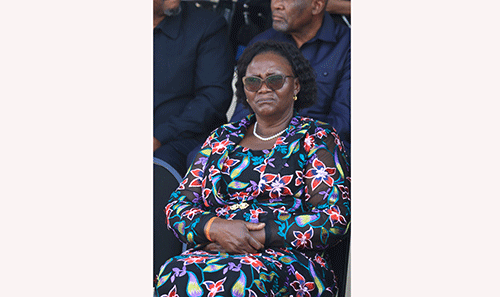Although Icelandic fishing company, Samherji has caused enormous damage to Namibian communities, the county has no willingness nor capacity to hold it accountable for the role it played in the Fishrot scandal.
According to Thor Fanndal, executive director at Transparency International in Iceland, despite individual Icelanders being outraged and angry that an Icelandic company could be a source of such grand corruption, the authorities and politicians feel that the corruption case is a Namibian issue.
Fanndal made the remarks during a virtual session on ‘Fishrot Human Rights Impact’ last week.
“Icelandic companies are capable of committing corruption and they are enabled by a legal and political environment that is fundamentally not willing to understand that corruption can sometimes be home-brewed,” said Fanndal.
He indicated that the notion that somehow honest Icelandic businessmen came to Namibia and were caught in the whirlwind of Namibian corruption is false.
“The fact, is Iceland is an exporter of corruption and in the last two years, we have seen unprecedented attacks of those trying to expose it,” noted Fanndal.
He added that Iceland needs help in keeping Samherji in check.
“The nonchalant culture against corruption in this country is the reason why Namibia has been hit so hard, and it is the reason why even two years later we have seen little evidence that these people will face any justice,” said Fanndal.
Samherji, its subsidiaries; Esja Holding, Mermaria Seafood Namibia, Saga Seafood, Heinaste Investment, Saga Investment, and Esja Investment, and directors; Egill Helgi Arnason, Ingvar Juliusson, and Helgason Adelsteinn are facing criminal charges for allegedly paying at least N$103.6 million in bribes to politicians and businessmen to get a competitive advantage in securing horse mackerel quotas in Namibia.
The prosecution alleges this transpired between 2014 and 2019.
Those who allegedly received bribes are former fisheries minister Bernard Esau, former justice minister Sackeus Shanghala, James Hatuikulipi, Tamson Hatuikulipi, Ricardo Gustavo, Pius Mwatelulo, Nigel van Wyk, Otneel Nandetonga Shuudifonya and Phillipus Mwapopi. They are all facing prosecution.
Iceland said they will not extradite their countrymen to Namibia due to the lack of an extradition treaty between the two nations.
Commenting on the matter, the International Commission of Jurists’ director of Africa programme Kaajal Ramjathan-Keogh said Fishrot is a classic case of state looting.
She said there is a pressing need to hold companies and persons involved in the Fishrot scandal accountable and for them to return the funds they attained corruptly.
“The role of banks that were facilitating these payments needs to be interrogated. If found that they acted in an unlawful manner, their licences need to be suspended for facilitating and supporting corrupt finances,” explained Ramjathan-Keogh.
Institute for Public Policy Research’s Graham Hopwood said Fishrot had a detrimental effect on the socio-economic status of the Namibian people.
Thus, their dignity needs to be restored.
“The key way to do this is to have the assets stolen from Namibia returned. So, they may be utilised for development, socio-economic advancement and restore the dignity of our people,” noted Hopwood.
He called for legal and policy reform and for Namibia to have transparency within the fishing industry.
“Secrecy allowed the whole Fishrot scandal to develop and unfold over a number of years. But ultimately, we want to see our stolen assets returned,” said Hopwood.
According to unionist Mahongora Kavihuha, approximately 1 000 fishermen were affected and many committed suicide as a detrimental effect of Fishrot.
-mamakali@nepc.com.na



